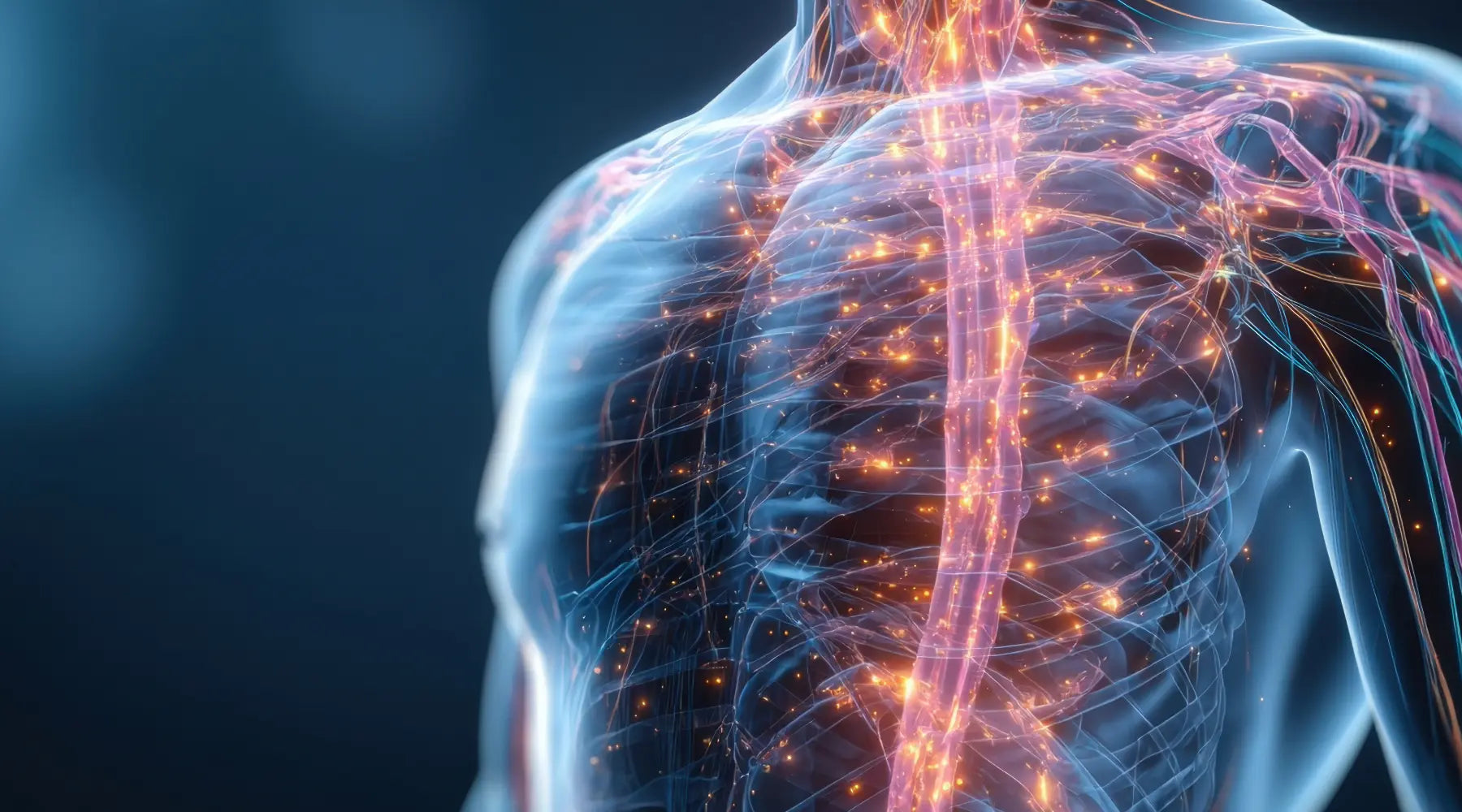Your autonomic nervous system is the control center for your entire body and mind - managing everything from mood to digestion, focus to relaxation.
It’s the foundation of both your physical and mental health and knowing how to regulate it is essential for optimum wellbeing.
We believe that everyone should be aware of how they can help support their own nervous system and have the tools to bring a sense of calm back into themselves.
Here are three easy to adopt ways to take control of your nervous system and help manage your mood.
1. Take real breaks away from your screen
Checking Instagram or playing a game on your phone is not a break - it’s just more information overload from another source.
Instead, we suggest some nature sound immersion. Lose yourself in bird song, or waves breaking on a beach, cicadas in a jungle…anything that transports you to a natural environment and the calm and peacefulness that can bring.
Another option could be either a short nap, or if you’re not feeling sleepy but wish to feel some deep relaxation, Non-Sleep Deep Rest (NSDR) advocated by Dr. Andrew Huberman, or some Yoga Nidra.
Both NSDR and Yoga Nidra activate deep parasympathetic nervous system recovery - ‘rest and digest’ - enhanced learning, reducing cortisol and improving mood.
*Shiftwave includes NSDR-enhanced protocols using mechanical vibrations to deepen this rest state, though you can also achieve it simply with headphones and a mat.

Quick Guide: How to Practice Yoga Nidra
-
Find a Quiet Space: Lie down comfortably on your back, arms relaxed at your sides.
-
Set an Intention: Mentally affirm a positive intention or goal for your session. E.g. I want to feel calm. I want to slow my thoughts.
-
Focus on Breath: Take slow, deep breaths to relax your body.
-
Body Scan: Bring awareness to different parts of your body, starting from your toes and moving upward.
-
Visualizations: Engage in guided imagery or visualizations as directed by a Yoga Nidra recording.
-
Return Slowly: Gradually bring your awareness back to the present moment before opening your eyes.
For a guided session, we suggest this Yoga Nidra practice by Dr. Andrew Huberman.
2. Practice Soft Belly Breathing
If we breathe by letting our belly expand, we activate our diaphragm more completely helping to instill calm and remove tension.

Here’s a guide to do Soft Belly Breathing, taught by Dr. James Gordon, at the Center for Mind-Body Medicine:
-
Inhale, expand your belly and say silently: “soft.”
-
Exhale, contract your belly and say: “belly.”
-
Do this 10-20 times, then pause and feel.
This method activates the vagus nerve and improves heart rate variability/HRV (the time between each heart beat), a key marker of nervous system balance.
3. Go for a Mindful Walk (Phone-Free)
People often get sleepy straight after a meal which is why it’s the perfect time for a gentle stroll. Walking helps the body and mind in the following ways:
-
Supports digestion and gut-brain health
-
Offers gentle cardiovascular and lymphatic movement
-
Encourages mental presence and parasympathetic nervous system activation
Leave your phone behind, you won’t need it. Let your instincts guide you. Notice your surroundings as you walk and observe your thoughts as they come and go.

Tip: Micro-Regulation = Macro-Resilience. A little bit can go a long way!
The journey to promoting nervous system regulation within yourself starts with small steps. Try these suggestions and discover the ones that work best for you.
-
10 soft belly breaths between meetings
-
NSDR instead of doomscrolling
-
A walk after lunch
The beneficial shifts that these activities create will ripple out into your productivity, your sleep, and your overall peace of mind.
One Final Thought:
The world we live in keeps our nervous systems in a nearly constant state of ‘fight or flight’, leading to anxiety, tension and an inability to let our bodies rest and recover properly.
We believe that everyone should be aware of how they can help support their own nervous system and have the tools to bring a sense of calm back into themselves.
Shiftwave exists to support nervous system health: whether that’s through our immersive technology, or by recommending free daily habits like those mentioned above.
We are here to help.
Further Resources to Explore





Q&A with Michael Penix Jr., Quarterback Atlanta Falcons
Shiftwave at Almedalen Week: Shining a Spotlight on Resilience and Recovery in Ukraine